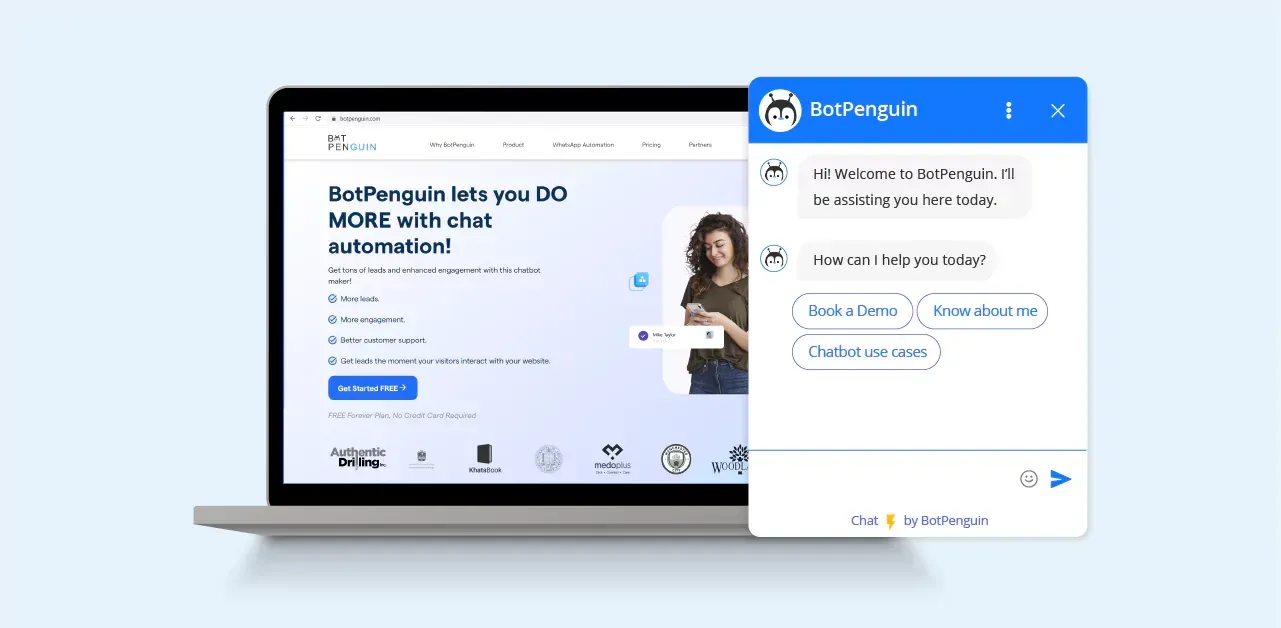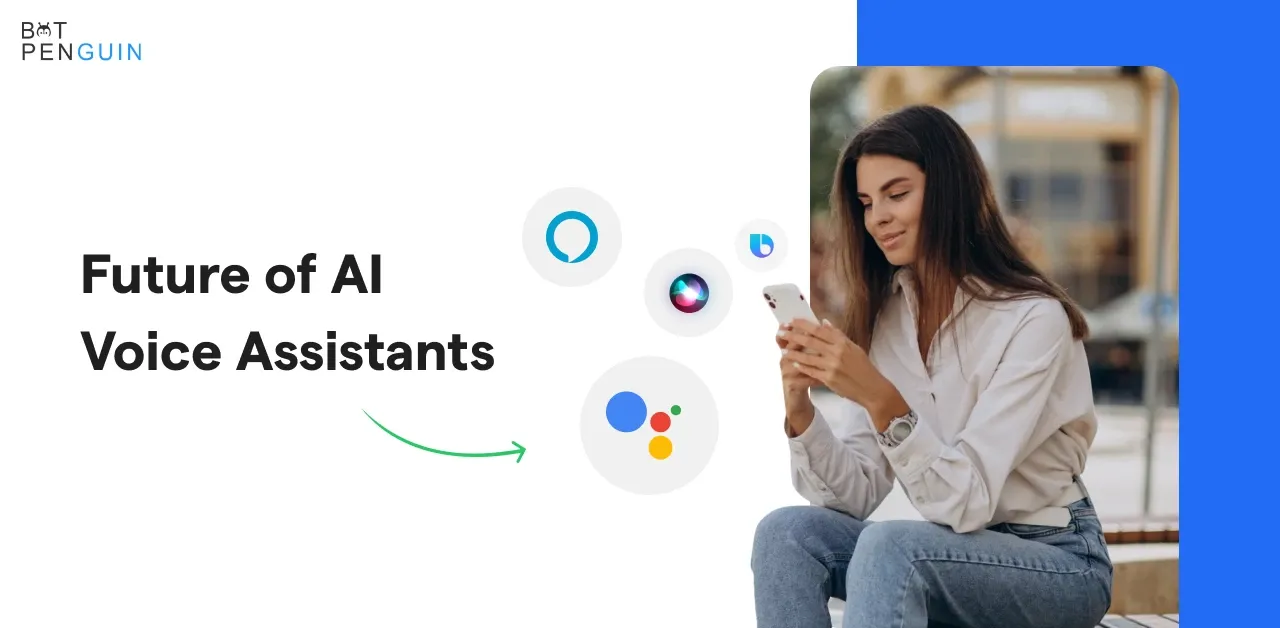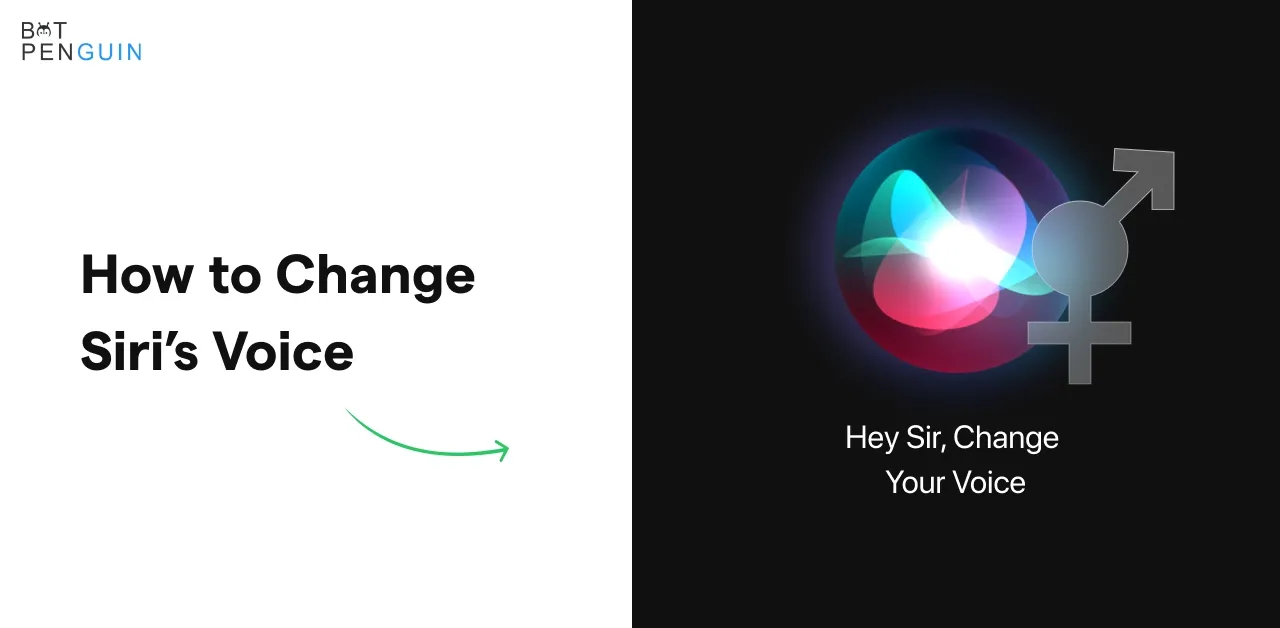Are you looking for ways to take your customer engagement to the next level? Now, you can achieve this goal with Contact Center AI.
Contact Center AI integrates artificial intelligence and machine learning into contact center operations. This technology transforms the way companies interact with their customers.
Contact Center AI enhances customer engagement by providing intelligent solutions for handling inquiries, resolving issues, and managing interactions. It leverages natural language processing to understand and respond to customer queries, delivering quick and accurate responses.
According to Gartner, 10% of agent interactions will get automated by 2026, up from an estimated 1.6% of interactions automated by AI in 2022.
Contact Center AI is revolutionizing customer engagement by reducing call wait times and improving first-call resolution rates. As Freshworks report says, 80% of customers expect quicker business responses.
This article will explore harnessing Contact Center AI to maximize customer engagement and drive business success.
What is Contact Center AI?
Contact Center AI is an advanced technology integrating AI and machine learning (ML) capabilities into contact center operations. It aims to automate and improve various aspects of customer interactions, including call routing, virtual agents, analytics, and more.
By harnessing the power of Contact center AI, businesses can enhance efficiency, reduce costs, and deliver exceptional customer service.
Key Features and Functionalities of Contact Center AI
Contact Center AI offers various powerful features and functionalities, revolutionizing how businesses handle customer interactions. Let's explore some of its key aspects:
- Automated Call Routing
Gone are the days of frustrating call transfers and long hold times. Contact Center AI automatically routes calls to the most suitable agent based on language preference, skills, and historical data.
It ensures that customers connect quickly with the right person who can address their needs efficiently.
- Virtual Agents
Say hello to virtual agents! Contact Center AI employs natural language processing and ML algorithms to create intelligent bots capable of handling basic customer queries.
These virtual agents can provide instant answers, assist with order tracking, and even complete simple transactions. Contact center AI frees human agents to focus on more complex customer issues.
- Sentiment Analysis
Contact Center AI can analyze real-time customer interactions to gauge their sentiment.
Tracking vocal cues, keywords, and tone of voice can detect customer satisfaction levels and identify potential issues. This invaluable feedback helps businesses understand customer needs better and improve overall service quality.
How It Differs from Traditional Contact Center Operations
Contact Center AI marks a significant departure from traditional contact center operations.
Traditional centers rely heavily on manual processes and human agents handling every aspect of customer interactions. Meanwhile, Contact Center AI leverages technology to automate and enhance operations.
With AI-powered automation, businesses can handle higher call volumes, reduce response times, and ensure consistent service quality. Virtual agents provide immediate support, 24/7, without the need for breaks or vacations.
Contact Center AI's sentiment analysis also enables companies to proactively address concerns, prevent customer churn, and enhance customer loyalty.
Benefits of Contact Center AI
With the advancement of technology, the use of artificial intelligence (AI) in contact centers has gained significant momentum. Let's look at the benefits of implementing AI in contact centers.
Improved Efficiency and Productivity
AI-powered contact centers have the potential to streamline operations and increase the efficiency and productivity of customer service teams.
By automating basic operations, customer support representatives can concentrate on more complicated situations that need human interaction. Such tasks include call routing and handling basic inquiries through chatbots,
It reduces response time and enhances the quality of service provided to customers.
- Automated Call Routing
AI algorithms can analyze incoming calls, gather relevant information, and intelligently route them to the most appropriate agent based on their skills and past performance.
It ensures that customers connect with the right person who can efficiently address their needs. Doing this results in faster resolutions and higher customer satisfaction rates.
- Chatbots for Basic Inquiries
Contact centers can instantly handle a large volume of basic inquiries by leveraging AI-powered chatbots. Chatbots can provide precise answers to frequently requested queries and are accessible around the clock. It will reduce the need for human involvement and shorten wait times.
It enables customer support agents to concentrate on more challenging problems requiring their knowledge.
And finding one for yourself isn't that tough. Meet Botpenguin, the home of chatbot solutions, all set to serve you on a bunch of platforms:

Cost Savings and Resource Optimization
Implementing AI in contact centers can lead to significant cost savings and resource optimization, making it an attractive proposition for businesses.
Here are some ways AI can bring financial benefits to contact centers:
- Reduced Operational Costs
By automating routine tasks and leveraging self-service options, contact centers can free up valuable resources that can be allocated to more productive activities.
It reduces the need for additional staff. Doing this resulted in substantial cost savings in recruitment, training, and employee salaries.
- Scalability and Flexibility
AI-powered contact centers provide the scalability and flexibility to handle fluctuating call volumes. Contact centers can quickly adapt to peak demand periods without needing temporary staff by utilizing chatbots and virtual agents.
Contact center AI allows businesses to optimize their resources and maintain high service levels while keeping costs in check.
Suggested Reading:
Enhanced Personalization and Customer Satisfaction
AI enables contact centers to deliver customers a more personalized experience, helping build stronger relationships and foster customer loyalty. By leveraging customer data and AI algorithms, contact centers can:
- Intelligent Customer Insights
AI algorithms can analyze customer data, including preferences, purchase history, and interaction patterns, to gain valuable insights. These insights enable contact centers to personalize interactions and offer tailored solutions that align with each customer's unique needs and preferences.
- Proactive Support
AI-powered systems can detect and flag potential issues in real-time, allowing contact centers to proactively reach out to customers and address their concerns before they escalate. By taking a proactive approach, contact centers can enhance customer satisfaction and prevent customer churn.
Implementing Contact Center AI
In this section, you will find a step-by-step process for implementing contact center AI.
Step 1
Identify the Business Objectives
The initial step in the implementation process is identifying the business objectives AI technologies will help achieve.
Clear and measurable goals can help determine the specific AI technologies to deploy.
This process should involve input from different departments, including customer service, marketing, and IT, to align goals and expectations.
Step 2
Assess the Current Contact Center Environment
The next step is thoroughly assessing the current contact center environment, including existing technologies and operations.
The analysis will offer insightful information about the system's advantages and disadvantages. It will also determine the AI technologies to deploy.
Step 3
Select AI Technologies
With clear objectives and a good understanding of the current system, selecting the appropriate AI technologies can commence.
Businesses should consider the AI technologies that align with their specific objectives, strengths, and weaknesses and can offer customers the most value.
Suggested Reading:
Step 4
Develop an Implementation Plan
The implementation plan should outline specific timelines, processes, and resources to ensure a successful AI integration.
This plan should be communicated widely throughout the organization to ensure all departments are aligned.
Step 5
Deploy AI Technologies in Stages
Deploying AI technologies in stages helps identify and address potential issues early. This approach allows businesses to make adjustments and fine-tune the system as needed.
Step 6
Monitor and Evaluate Performance
Monitoring and evaluating performance is a continual activity. It involves analyzing data and customer and employee feedback. This approach helps identify areas needing improvement and ensures that the system delivers the expected benefits.
Considerations and Challenges in Implementing Contact Center AI
Integrating contact center AI technologies has its challenges. To achieve a seamless and effective integration, businesses should take the following elements into account:
Data Management
Successful AI integration in contact centers requires accurate and easily accessible data. Therefore, businesses should ensure their data management systems are optimized for AI integration.
Technical Expertise
The successful integration of contact center AI requires technical expertise, which can be a challenge if the organization does not have the resources and skills in-house. Therefore, businesses should consider partnering with AI experts to ensure successful integration.
The Role of Data and Analytics in Integrating AI Technologies
Data and analytics are crucial in integrating AI technologies into contact centers. Here's how:
Enhance Customer Experience
Contact centers use data and analytics to gain insights into customer behavior, preferences, and needs. This information helps personalize interactions with customers, increasing their satisfaction and loyalty.
Improve the Efficiency of Contact Centers
Data and analytics help identify customers' reoccurring issues, leading to the development of AI applications like chatbots, which can solve common problems quickly and easily.
Enhance Training and Development Programs
Contact centers can develop and enhance training and development programs to optimize agent performance by analyzing customer interactions with agents.
Best Practices for Customer Engagement with Contact Center AI
This section will share actionable tips and strategies for maximizing customer engagement using Contact center AI technology.
Optimizing Customer Engagement with AI Technology
Here are some essential practices for customer engagement with contact center AI.
- Personalize Customer Interactions
AI technology empowers businesses to deliver personalized experiences to their customers.
Contact centers can tailor interactions and offer relevant recommendations or solutions by leveraging customer data and AI algorithms. Personalization enhances customer satisfaction and fosters long-term loyalty.
- Provide Omnichannel Support
AI-powered chatbots and virtual agents can seamlessly handle customer inquiries across multiple channels, including voice, chat, email, and social media. This omnichannel support ensures consistent and efficient customer engagement, regardless of the platform customers use to reach out.

- Leverage Predictive Analytics
Predictive analytics enabled by AI can anticipate customer needs and provide proactive support. By analyzing customer data, businesses can identify patterns or trends indicating a potential issue and take preemptive action to address it. Anticipating customer needs demonstrates proactive and customer-centric service.
The Importance of Training and Empowering AI Models
To achieve optimal customer engagement, training and empowering AI models effectively is crucial. Here are some key considerations:
- Collect Comprehensive and Diverse Training Data
Training AI models with comprehensive and diverse data ensures accurate and unbiased predictions.
Contact centers should collect data from various sources, including historical customer interactions, user feedback, and real-time conversations. This diverse training data helps the AI models understand and respond effectively to customer inquiries.
- Continuously Monitor and Improve AI Models
AI models require ongoing monitoring and improvement to adapt to evolving customer needs.
Regularly evaluate the performance of AI models, collect customer feedback, and fine-tune the models as necessary. This iterative process ensures that AI models stay relevant, accurate, and aligned with customer expectations.
- Implement Ethical AI Practices
Ethics play a vital role in AI implementation. Ensure that AI models adhere to ethical guidelines, such as maintaining customer data privacy and treating all customers fairly and equally.
Transparently communicate the use of AI to customers, allowing them to interact with a human agent if they prefer.
The Role of Human Agents in Conjunction with AI
While AI technology enhances customer engagement, human agents still play a significant role. Here's how human agents and AI can collaborate effectively:
- Focus on Complex and Emotional Interactions
AI excels at handling routine inquiries and providing quick solutions. Human agents can then concentrate on more complex and emotionally sensitive customer interactions that require empathy, critical thinking, and personalized support. This human touch creates a positive impression and builds customer trust.

- Continuous Training for Human Agents
Human agents must stay updated with new features and capabilities as AI evolves. Invest in continuous training programs that equip agents with the skills necessary to work alongside AI and make the most of its capabilities. This ongoing development ensures that agents can provide practical support, even as AI technology advances.
- Foster Collaboration and Feedback
Encourage collaboration between AI and human agents by inviting feedback from both sides. Human agents can provide insights on customer issues or preferences, helping AI models improve. Likewise, AI can offer recommendations and suggested responses to human agents, enhancing their efficiency and effectiveness.
Future Trends and Innovations in Contact Center AI
As we look to the future, businesses should be aware of several emerging trends and innovations in Contact Center AI to stay ahead of the curve.
Let's explore these trends and discuss the potential advancements they bring to customer engagement.
Enhancing Customer Experience with Virtual Agents
One of the most exciting trends in Contact Center AI is the development of virtual agents. These AI-powered chatbots and voice assistants can understand and respond to customer inquiries and issues.
They have the potential to provide immediate and accurate assistance, reducing the need for customers to wait for a human agent.
Virtual agents can be available 24/7 and handle multiple interactions simultaneously, ensuring a seamless customer experience.
Natural Language Processing and Understanding
Natural language understanding (NLU) and natural language processing (NLP) developments enable virtual agents to comprehend and respond to client inquiries.
NLP allows AI systems to analyze and interpret human language, while NLU helps them comprehend the meaning and context behind customer interactions.
As NLP and NLU continue to improve, virtual agents will become even more intelligent and capable of handling complex customer requests.
Augmented Intelligence for Human Agents
While virtual agents have benefits, human agents still play a crucial role in customer engagement.
Contact Center AI now focuses on augmenting human agents with AI-powered tools and insights.
By providing agents with real-time information and suggestions, AI can help them deliver more personalized and efficient customer service. These tools can analyze customer data, identify patterns, and predict customer needs, empowering agents to provide proactive and tailored solutions.
Sentiment Analysis and Emotional Intelligence
Understanding customer emotions is becoming increasingly important in delivering exceptional customer service.
AI-powered sentiment analysis tools can analyze customer interactions to detect emotions and give agents insights into the best responses.
By incorporating emotional intelligence into customer engagement, businesses can build stronger customer relationships and anticipate their needs.
Contextual Routing and Omnichannel Integration
As customers continue interacting with businesses through multiple channels, Contact Center AI focuses on contextual routing and omnichannel integration.
AI systems can assess client data, including prior interactions and preferences, to direct consumers to the most appropriate agent or channel.
Regardless of the engagement channel customers select, it guarantees a seamless and customized client experience.
Predictive Analytics for Customer Journey
AI-powered predictive analytics is another innovative trend in Contact Center AI. Businesses can anticipate customer needs and intervene at the right moment by analyzing customer data and behaviors.
For example, if a customer displays dissatisfaction, AI algorithms can trigger proactive actions to prevent churn, such as offering a timely discount or personalized recommendation.
Conclusion
In conclusion, Contact Center AI presents a world of possibilities for maximizing customer engagement. Through Contact Center AI, businesses can enhance the customer experience through virtual agents, augmented intelligence, contextual routing, and predictive analytics.
Contact Center AI can significantly reduce customer wait times, provide 24/7 support, and handle routine inquiries. It allows agents to work on more complex and value-added tasks.
Moreover, Contact Center AI can analyze customer interactions in real time. It enables businesses to proactively identify trends, address issues, and enhance overall service quality.
Whether you're a contact center manager, a customer service professional, a business owner, or a decision-maker, embrace Contact Center AI. It assists in optimizing customer experience and gaining a competitive edge.
A well-implemented Contact Center AI strategy can ultimately increase customer satisfaction, loyalty, and retention.
So why wait? Maximize your customer engagement with Contact Center AI.
Suggested Reading:
Choose Apptivo Integration with BotPenguin chatbot For Aligning Operations Anytime, anywhere
Frequently Asked Questions (FAQs)
How can businesses implement Contact Center AI to maximize customer engagement?
To start with Contact Center AI, businesses can begin by assessing customer engagement strategies. It will identify pain points to improve with AI, explore AI solution providers, or consult with experts in the field to develop a tailored implementation plan.
Is Contact Center AI suitable for businesses of all sizes?
Yes, Contact Center AI can benefit businesses of all sizes by enhancing customer engagement. It can meet specific requirements and budgets, making them accessible and scalable for businesses regardless of size.
How can businesses measure the impact of Contact Center AI on customer engagement?
Businesses can measure the impact of Contact Center AI through metrics such as customer satisfaction scores, customer retention rates, average handling time, and first-call resolution rates. These measures can assess the effectiveness of AI in maximizing customer engagement.
What are the potential challenges in implementing Contact Center AI for customer engagement?
Some potential challenges include ensuring data privacy and security, training AI systems to understand complex customer queries, and integrating AI technology seamlessly into existing contact center processes.



